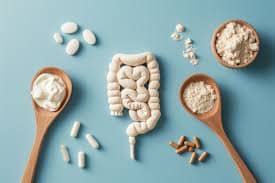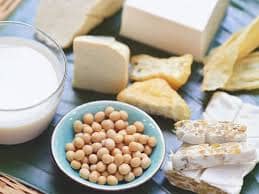Their Importance for Health and Immune Defense

Probiotics: Their Importance for Health and Immune Defense
Probiotics, defined as live microorganisms that confer health benefits to the host when administered in adequate amounts, have garnered significant attention in recent years. These beneficial bacteria play a crucial role in maintaining gut health, enhancing immune function, and preventing various diseases. This article delves into the significance of probiotics for overall health and the body’s defense mechanisms, supported by recent research findings.
Understanding Probiotics
What Are Probiotics?
Probiotics are live microorganisms, predominantly bacteria, that reside in our digestive tract. They are often referred to as “good” or “friendly” bacteria due to their role in maintaining intestinal flora balance and promoting health. Common probiotic strains include Lactobacillus and Bifidobacterium.
Sources of Probiotics
Probiotics can be obtained through various sources, including:
- Fermented Foods: Yogurt, kefir, sauerkraut, kimchi, and miso are rich in live cultures.
- Dietary Supplements: Available in capsules, tablets, or powders containing specific probiotic strains.
- Fortified Foods: Certain cereals, juices, and snack bars are enriched with probiotics.

Probiotics
The Role of Probiotics in Health
Gut Health
The human gut harbors trillions of microorganisms, collectively known as the gut microbiota. A balanced microbiota is essential for:
- Digestion: Probiotics aid in breaking down complex carbohydrates and fibers, facilitating nutrient absorption.
- Prevention of Diarrhea: Certain probiotic strains have been shown to prevent antibiotic-associated diarrhea and reduce the severity of infectious diarrhea.
- Alleviation of Irritable Bowel Syndrome (IBS): Probiotics may help reduce symptoms such as bloating, gas, and abdominal pain in individuals with IBS.
Immune System Support
Probiotics interact with the immune system in several ways:
- Enhancing Immune Response: They stimulate the activity of immune cells, such as macrophages and natural killer cells, and increase the production of antibodies.
- Modulating Inflammation: Probiotics can promote the production of anti-inflammatory cytokines, aiding in the regulation of immune responses.
- Competitive Inhibition: By occupying adhesion sites on the intestinal lining, probiotics prevent pathogenic bacteria from colonizing the gut.
Mental Health
Emerging research suggests a connection between gut health and mental well-being, often referred to as the “gut-brain axis.” Probiotics may influence mood and cognitive function by:
- Producing Neurotransmitters: Certain strains can produce serotonin and gamma-aminobutyric acid (GABA), which are critical for mood regulation.
- Reducing Stress and Anxiety: Studies have indicated that probiotic supplementation can alleviate symptoms of stress and anxiety.
Skin Health
Probiotics may contribute to skin health by:
- Reducing Inflammation: They can alleviate inflammatory skin conditions such as acne and eczema.
- Enhancing Skin Barrier Function: Probiotics help maintain skin hydration and protect against environmental stressors.
Recent Research on Probiotics
Probiotics and Immune Function
A study published in the Journal of Clinical Medicine highlights that probiotics can alter the intestinal microbiota and positively impact the host’s immune system. By modulating humoral and cellular immune responses, probiotics are thought to strengthen the immune system.
Probiotics in Disease Prevention
Research featured in Frontiers in Nutrition indicates that probiotics, along with prebiotics and postbiotics, can improve intestinal microbiota homeostasis, maintain gut barrier integrity, and modulate immune responses. These mechanisms contribute to preventing pathogen invasion and reducing the risks of obesity, type 2 diabetes, inflammatory bowel disease, and other disorders.
Probiotics and Mental Health
A comprehensive review in MDPI Microorganisms discusses the potential impact of probiotics on human health, including mental well-being. The review suggests that probiotics can improve or restore gut microbiota, which in turn has been linked to improved health outcomes, including mental health.

Choosing the Right Probiotic Supplement
When incorporating probiotic supplements into your routine, it is essential to select products that align with your health goals. Here are key factors to consider:
- Strain-Specific Benefits
- Different probiotic strains offer distinct health benefits. For example:
- Lactobacillus rhamnosus: Supports digestive health and prevents diarrhea.
- Bifidobacterium bifidum: Enhances immune response and promotes gut balance.
- Saccharomyces boulardii: Effective for addressing antibiotic-associated diarrhea.
- Different probiotic strains offer distinct health benefits. For example:
- Colony Forming Units (CFUs)
- CFUs indicate the number of live microorganisms in a probiotic supplement. A higher CFU count (5-20 billion) is typically recommended for noticeable benefits.
- Shelf Stability and Viability
- Choose products that ensure live bacteria remain viable until consumption. Look for probiotics with protective packaging or freeze-dried formulations.
- Third-Party Testing
- Opt for supplements tested by independent organizations to ensure purity, potency, and safety.
The Link Between Probiotics and Immune System Health
Probiotics and Gut-Immune Connection
The gut houses approximately 70% of the body’s immune cells, making it a central hub for immune regulation. Probiotics play a significant role in:
- Strengthening the gut barrier, preventing harmful pathogens from entering the bloodstream.
- Stimulating the production of immunoglobulins (e.g., IgA) to enhance immune defense.
- Modulating inflammatory responses, thereby reducing the risk of chronic inflammation.
Research Insight: A study published in Nutrients highlights that regular consumption of probiotics strengthens the gut microbiota, leading to better resistance against infections and improved overall immunity .

Probiotics for Specific Health Conditions
1. Digestive Disorders
Probiotics have been shown to alleviate symptoms of conditions such as:
- Irritable Bowel Syndrome (IBS): Studies indicate that Bifidobacterium infantis helps reduce bloating and discomfort.
- Inflammatory Bowel Disease (IBD): Probiotics can reduce inflammation and support intestinal healing.
2. Immune-Related Conditions
Probiotics are beneficial in preventing upper respiratory tract infections, reducing the severity of colds, and enhancing the immune system’s response to pathogens.
Research Insight: Clinical trials reveal that probiotics like Lactobacillus acidophilus can significantly lower the risk of respiratory infections in children and adults .
3. Mental Health and Stress
Probiotics are increasingly recognized for their role in mental health through the gut-brain axis. Regular intake of specific strains can help reduce symptoms of:
- Anxiety
- Depression
- Stress-related disorders
How to Maintain a Healthy Gut Microbiota
- Incorporate a Probiotic-Rich Diet:
- Include fermented foods like yogurt, kefir, sauerkraut, kimchi, and miso.
- Prebiotics for Synergy:
- Prebiotics, found in foods like garlic, onions, and bananas, nourish beneficial bacteria and enhance probiotic efficacy.
- Avoid Overuse of Antibiotics:
- Antibiotics disrupt gut microbiota balance. Use them only when necessary and consider taking probiotics during recovery.
- Stay Hydrated and Active:
- Hydration and physical activity contribute to gut health and microbial diversity.
Incorporating Probiotics into Your Diet

Dietary Sources
Including probiotic-rich foods in your daily diet can enhance gut health. Here are some foods known for their probiotic content:
Yogurt
Made from fermented milk, yogurt is a well-known source of probiotics, particularly Lactobacillus and Bifidobacterium strains.
Kefir
A fermented milk drink that contains a diverse range of probiotic bacteria and yeasts.
Sauerkraut
Fermented cabbage that is rich in probiotics and vitamins. Recent studies highlight its health benefits, including immune support.
Kimchi
A traditional Korean dish made from fermented vegetables, known for its probiotic content and spicy flavor.
Miso
A Japanese seasoning produced by fermenting soybeans, miso is used in soups and sauces and contains beneficial bacteria.
Conclusion
Probiotics are powerful allies in maintaining optimal gut health, supporting the immune system, and improving overall well-being. By incorporating probiotic-rich foods or supplements into your diet, you can enhance digestion, strengthen immunity, and even improve mental health.
The growing body of research highlights the significant role probiotics play in disease prevention and overall health. Whether through fermented foods or carefully selected supplements, probiotics offer a natural and effective way to nurture your body from the inside out.
To maximize the benefits, prioritize a balanced diet, choose strain-specific supplements, and consult healthcare professionals for personalized recommendations. With a healthy gut, you pave the way for a healthier and more resilient you.
Probiotics: Their Importance for Health and Immune Defense
Search More: https://youtu.be/gQ8p2xMNVuo?si=cNXcmI2wqeOTdD4R
Key Nutrients for Improved Well-Being
Read More https://www.mdpi.com/2077-0383/13/5/1436?utm_source=chatgpt.com




Pingback: Messenger RNA Vaccines - VarietyWeb